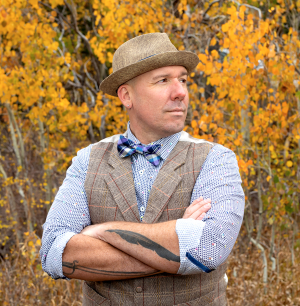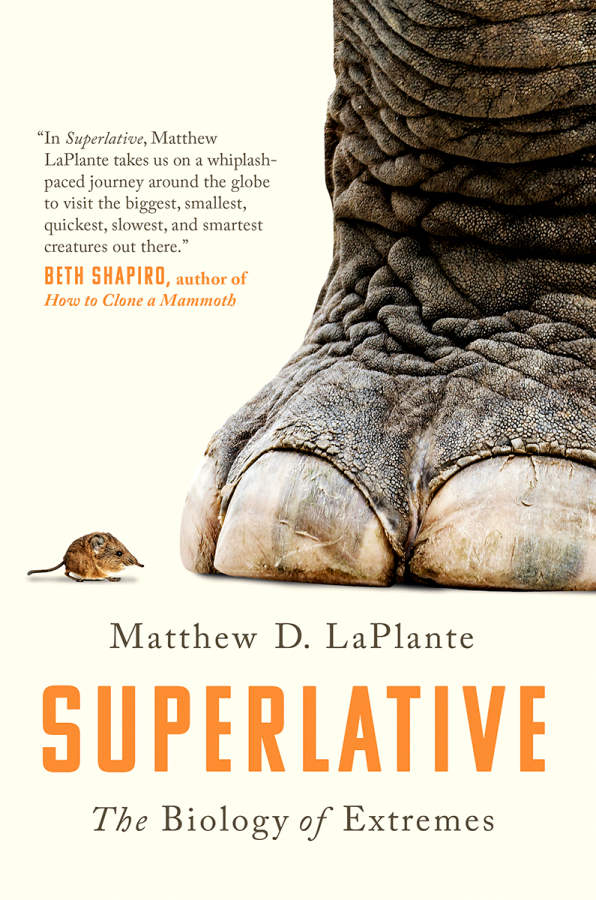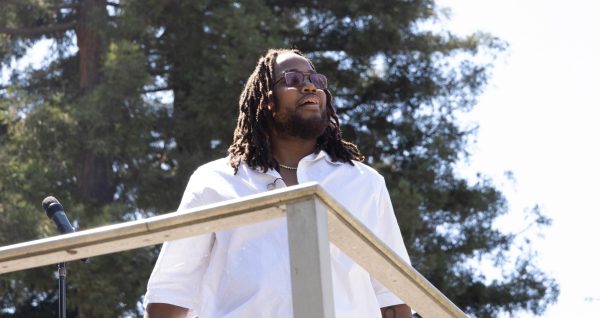CSUEB Alumni releases new book
June 13, 2019
The idea that would eventually become Matthew D. LaPlante’s new book, Superlative: The Biology of Extremes, spawned from a question he had: “What is the largest living life form?”
LaPlante is an author, journalist, and professor of journalism at Utah State University. He is also an alumnus of California State University, East Bay (Master’s, 2010). He used his journalistic background and fondness for animals to guide him on a journey around the world to conduct research for his new book.
Superlative is the story of extreme things in many forms. It discusses animals and plants of all sizes, climate change, why elephants despite their immense size, almost never develop cancer, and so much more.
If Superlative sounds unlike any book you’ve read before, that’s because it is. LaPlante, both as a journalist and an author, is driven by an important philosophy.
“It’s not exciting to tell a story that’s already been told,” he said. “When you’re telling stories that have a real good chance of being new to people, that’s what’s really exciting about the practice of journalism and storytelling.”
Superlative looks at some issues that have been widely discussed and debated, such as climate change. Part of LaPlante’s skill as an author and storyteller is taking an issue that many are familiar with, and presenting it in a new way.
“We only have a short time on this planet,” he said. “And I want to be adding, I don’t want to be recycling what’s already out there.”
On climate change, there is a simple solution that could buy us some time.
“The science isn’t universally telling us there’s nothing we can do,” LaPlante said. “There is time to battle back from the damage we have done.”
Redwood trees, LaPlante writes in Superlative, will suck in mass amounts of carbon in the atmosphere. While this is not a fix, it is a relatively easy thing that anyone can do.
“We can plant redwood trees,” LaPlante said. “(It is) something all of us can do. It’s crazy how simple that is.”
On many aspects of his new book, including climate change, LaPlante noticed a theme as he talked with scientists and researchers all over the world.
“Nature has come up with some really simplistic solutions,” he said. “And we try to overcomplicate things. Sometimes, nature has the answer.”

If you are interested to learn why cheetahs should be extinct — but are still very much alive — or how the world’s deadliest poisons could lead to a cancer cure, Superlative discusses all of this and more. LaPlante goes on a journey analyzing things you may have never pondered before.
LaPlante’s new book is, among other things, the culmination of an interest in science and a determination to discover extremes in various forms.
“If you’re looking for things that are extreme,” he said, “the things that you do find along the way are going to fascinate you.”
LaPlante, a native of Fremont, Calif., first stepped on the CSUEB campus at the age of 12. He was attending his mother’s graduation ceremony, from then-California State University, Hayward. He would eventually follow in his mother’s footsteps, attending CSUEB to obtain his Master’s degree in Education in 2010.
“I get the alumni magazine from Cal State East Bay, and it looks like the world,” LaPlante said, in an ode to CSUEB’s diversity. “It makes me feel good about how diverse it is.”
Having traveled the world to write Superlative, LaPlante knows that diversity in animals leads to extremes, from elephants to bugs, from small plants to redwood trees, and more. LaPlante shares all of his discoveries in his new book, which is available now from publisher BenBella books.
















